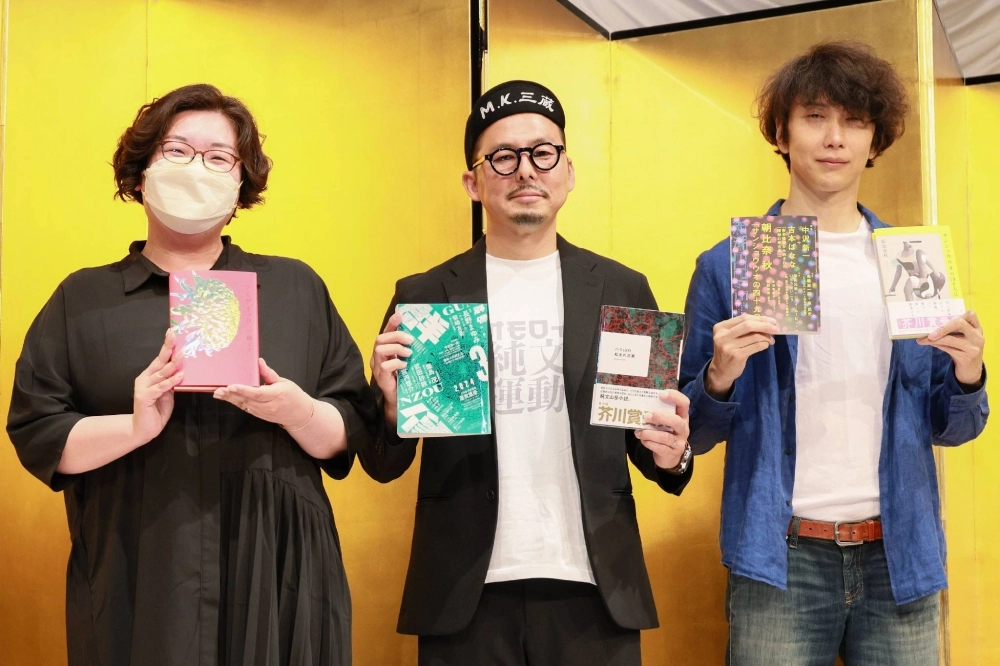Novels about extreme mountain climbing, rare medical conditions and crime during the pandemic received two of Japan's most prestigious literary prizes on Wednesday.
The 171st Akutagawa Prize, given to up-and-coming writers for a work of literary fiction published in a newspaper or magazine, has two winners this time around: Sanzo K. Matsunaga for “Bari Sanko” (roughly translated as “Extreme Mountain Climbing”) and Aki Asahina for “Sanshouo no Shijuku-nichi” (“The 49th day of the Salamander”).
Meanwhile, the 171st Naoki Prize, given to an early or mid-career author for a work of pop or genre fiction, went to Michi Ichiho for “Tsumidemikku.”


















With your current subscription plan you can comment on stories. However, before writing your first comment, please create a display name in the Profile section of your subscriber account page.